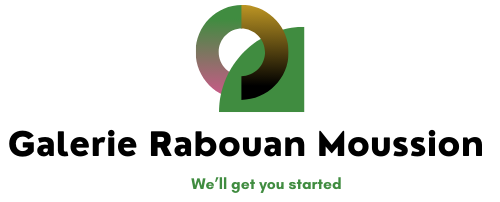Selling jewelry can be an exciting yet challenging process. Whether you’re parting with a family heirloom or simply looking to declutter your collection, ensuring you get the best possible deal is essential. With so many options available, πωληση κοσμηματων can seem overwhelming at first. However, by following expert advice, you can maximize your return and confidently sell your items.
In this article, we will explore the most effective strategies for selling jewelry, ensuring that you walk away with top dollar while avoiding common pitfalls. Read on to discover everything you need to know about selling your pieces.

1. Understand the Value of Your Jewelry
Before you begin the selling process, it’s important to understand the value of your jewelry. The type of jewelry, materials used, brand, and market demand can significantly influence its worth. While some pieces may have emotional value, separating that from their financial value is essential. Here’s what to consider:
- Material: Determine whether your jewelry is made from gold, silver, platinum, or another precious metal. For instance, the higher the karat in gold, the more valuable it will be.
- Gemstones: Diamonds, sapphires, emeralds, and other gemstones add value to your pieces. Understanding the carat weight and clarity of these stones is crucial.
- Designer: Branded or designer jewelry from names like Cartier, Tiffany & Co., or Bulgari tends to command higher prices than generic pieces.
To assess the value accurately, it’s a good idea to get your jewelry appraised by a professional. Appraisals give you an idea of your piece’s worth and can help you set a fair price when selling.
2. Clean and Repair Your Jewelry
Presentation matters when selling jewelry. A piece that sparkles and is in good condition is far more attractive to potential buyers. Clean your jewelry thoroughly, or have it professionally cleaned if needed, to restore its shine and appeal. Small repairs such as fixing clasps, replacing missing stones, or polishing scratches can also significantly increase the resale value.
While it may seem like an unnecessary step, investing in minor repairs can make a big difference in how much money you receive for your jewelry. Buyers are more likely to pay top dollar for items that appear well-maintained and in excellent condition.
3. Choose the Right Selling Platform
There are many different platforms to sell your jewelry, each with its own advantages and disadvantages. Here are the most common options:
- Jewelry stores: Some jewelry stores offer to buy back pieces, especially if they specialize in secondhand or estate jewelry. They often provide quick sales but may offer lower payouts.
- Online marketplaces: Sites like eBay, Etsy, and Poshmark allow you to sell jewelry directly to consumers. You can set your price, but you’ll need to handle shipping and customer service.
- Auction houses: If you have high-end or rare pieces, auction houses can help you get top dollar. These platforms attract serious buyers but often charge fees.
- Gold buyers or pawn shops: If you’re primarily selling gold or silver, metal buyers or pawn shops offer quick cash. However, they often offer lower prices compared to other methods.
- Dedicated online jewelry buyers: Some websites specialize in buying and reselling jewelry. They typically offer a free appraisal and make offers based on current market conditions.
Selecting the right platform will depend on the type of jewelry you’re selling and how quickly you need the cash. For higher-end pieces, auction houses or online jewelry buyers may offer the best value, while gold buyers and pawn shops are ideal for quick sales.
4. Gather Documentation
Documentation adds credibility and value to your jewelry, especially for high-end pieces. If you have certificates of authenticity, original packaging, or receipts, these items will make your jewelry more appealing to buyers. Documentation such as diamond grading reports or appraisals can justify your asking price and reassure buyers of the item’s quality.
If you’ve misplaced documentation, consider getting a new appraisal or certificate before listing your jewelry for sale. This small investment can go a long way in increasing buyer confidence and helping you secure a better deal.
5. Set a Realistic Price
Setting the right price for your jewelry is key to attracting buyers while ensuring you get the best possible return. If your price is reasonable, you may scare away potential buyers. On the other hand, setting it too low could mean leaving money on the table.
Research the current market for similar items and consider factors like material, brand, and condition when setting your price. If you’re unsure, ask for professional guidance or look at recent sales of comparable items to establish a fair market value.
Some sellers opt to start with a slightly higher price to leave room for negotiation, while others prefer to list at a competitive rate to encourage a quicker sale.
6. Avoid Common Pitfalls
There are several pitfalls to avoid when selling jewelry. One of the most common mistakes is accepting the first offer without exploring other options. Always compare offers from multiple buyers to ensure you’re getting the best deal.
Another mistake is selling jewelry for its scrap value when it could be worth more as a finished piece. Unless you’re selling broken or damaged jewelry, avoid gold buyers or pawn shops unless you’ve confirmed your jewelry’s resale value is lower than its material worth.
Finally, be wary of scammers, especially if selling through online platforms. Only sell to reputable buyers and platforms; avoid sharing personal information with unknown parties.

7. Negotiate with Confidence
Negotiation is a natural part of selling jewelry, and you should be prepared to engage in it confidently. Know your minimum price and stick to it, but be open to reasonable offers. Don’t be afraid to walk away if a buyer isn’t meeting your expectations.
Understanding the market value and having your jewelry appraised beforehand will help you negotiate effectively. If you’re selling through a platform that allows bidding, patience can also pay off—waiting for the right buyer may result in a higher offer.
Conclusion
Selling jewelry can be a rewarding experience when done correctly. By understanding the value of your pieces, cleaning and repairing them, choosing the right platform, and negotiating confidently, you can ensure you get the most cash for your items. Avoiding common mistakes and gathering necessary documentation will further enhance your chances of a successful sale.
With these expert tips, you’re well on selling your jewelry for the best possible return. Whether you’re selling a single piece or an entire collection, a well-informed approach will help you achieve your financial goals.

